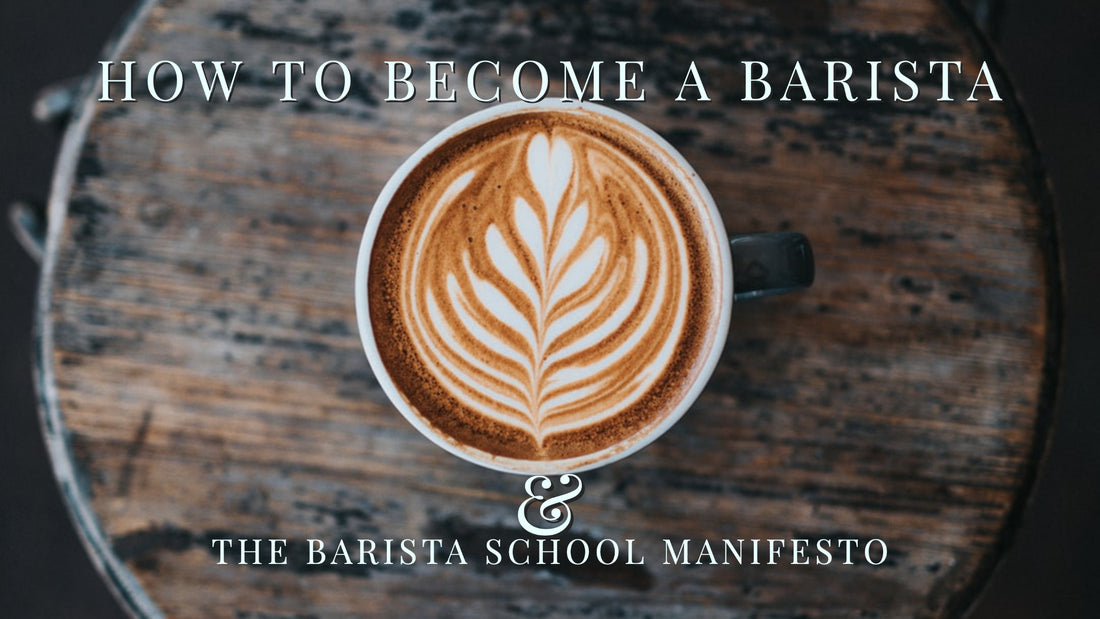How to Become a Barista
So you want to become a barista?
That’s fantastic, because in Canada, 2/3rds of our population or about 24.5 million, drink coffee on a daily basis, making lots of opportunities for you to work as a barista.
But where to start?
Do you need to go to school and get certified? The truth isn’t quite so simple.
If you were to poll all of the past Canadian Barista Champions, you would find the majority are not certified. They just know their way around an espresso machine better than a cabbie knows the streets of Toronto.
Perhaps more importantly, if you were to ask cafe owners, you would find that the majority are not looking for baristas with certificates nor do they require it.
We understand how it is, and this is where our barista training courses can help you.
We’re proud to offer the least expensive and quickest-to-finish training, preparing you with only the skills needed for becoming a barista and land your first barista job.
Our aim is to teach you all the secrets as fast as possible!
Barista Tips for Beginners
Just like the majority of barista champions, you can learn as you go, as long as you start off with the correct fundamental techniques.
Coffee is not rocket science. You don’t need a university degree to work in, learn about or to enjoy coffee. Coffee is a technique that you can learn, and become great at it with lots of practise. Once the techniques are mastered you need to learn to taste. Again, anyone can do this with the right guidance.
The same tried and tested step-by-step techniques that work for competitors on the World Barista Championship stage can work for you too.
Once you are familiar with the step-by-step methods, equipment knowledge, preparing specialty coffee drinks and have a thorough understanding of the basics of being a barista then you will stand out from all other job applicants.
Thus, the recipe for success in getting barista jobs is short and sweet training, followed by on-the-job practice.
How Much Do Baristas Make?
Working your way up in a cafe is a valuable experience that can take you all the way from dishwashing and cleaning, to food and beverage service, to sales and interacting with customers, to learning to manage a business.
Along the way, we advise you to be honest, work hard, and learn a lot from the coffee business. After some time, you will see if it really is your calling, or if it’s perhaps time to move on.
However, here’s the financial reality of being a barista...
Working as a barista is a minimum wage job. While it may have an air of glamour from a few stylish baristas in trendy cafes, ultimately a barista fills a service job. It’s similar to working as a line cook or a dishwasher in a commercial restaurant kitchen. But, with our training, you can have lots of fun and learn to serve the highest quality coffee!
If you do want to earn more than minimum wage, you’ll have to offer more than elegant latte art. This means a suite of soft skills so that you can manage staff and contribute to running a coffee business.
If your ambition is to open your own cafe, then please know that there is plenty of room out there for entrepreneurs. It’s a thriving business, and the public are increasingly growing in their appreciation for quality third-wave coffee.
If you are simply looking for a part-time job then the coffee industry is ideal. Whether you live in Toronto, Montreal or a small town in between, there are always neighbourhood cafes looking for baristas.
The Cafe Is A Community-Based Business
If you are going to own and operate a small cafe, then you must do it for the benefit of your community, by hiring locally, and supporting your staff with opportunities to compete and further their education in a multitude of ways, including food service skills, business practices, and customer service.
Our official mandate is to train people in coffee preparation and business skills, we also have an ulterior motive…
We are dedicated to helping people become cultured, confident, and capable. With the right approach, the community cafe has proven to be an excellent environment that can support this kind of personal development.
Barista School Manifesto
We teach fundamental coffee skills, hope others will appreciate the craft, and pass these on. We aim to inspire people to care about coffee quality. Even if they move on from working in the industry, we hope they will at least continue to share their appreciation as customers. We want coffee to be more than just a drink. We want to elevate it as a trade, a skill, a vocation, and a craft.- Repairing espresso machines is a trade.
- Baristaship is a skill.
- Running a cafe is a vocation.
- Roasting coffee is a craft.
The industry needs all kinds of talented and passionate people. However, out of all of them, it is usually baristas who act as the bridge.
What Does a Barista Really Do?
A good barista can provide not only an espresso, but an experience. A good barista is informed and passionate about their occupation. A good barista is an ambassador, teaching people how to appreciate coffee, helping consumers identify tastes, and educating them on what to buy, what to drink, and what to trust.
And amongst baristas, competition champions have an important role to play. World Barista Champions are put into the public spotlight, and are therefore crucial ambassadors. We hope they embody and emphasise values such as helping people, sharing, teaching, building community, and being polite. We hope they understand that competitions are not about any one star, but about the energy around the event, and the strength of its community. We hope they are inspirational for others to follow in their footsteps.
Essential Barista Skills
The skill set of a barista can be summed up as: Slowly Fast. Sound paradoxical? Let’s break it down.
Slowly Fast refers to a baristas deportment, their manner of working. If you simply move slowly, orders will soon be piling up. So that’s no good. On the other hand, if you just move quickly, quality can go down, orders can get forgotten or confused, and everyone can get stressed. However, if you have your workstation clean and organised, your approach systematised, and your attitude calm yet concentrated, you can move Slowly Fast.
One secret to working Slowly Fast is having all your tools and ingredients organised and at hand. This idea was developed by the great French chef, Marie-Antoine Carême, who termed it mise en place, or, everything in its place.
Coffee knowledge should be communal intellectual property. There’s no need to reinvent the wheel here, just learn from the best, and practice, practice, practice!



